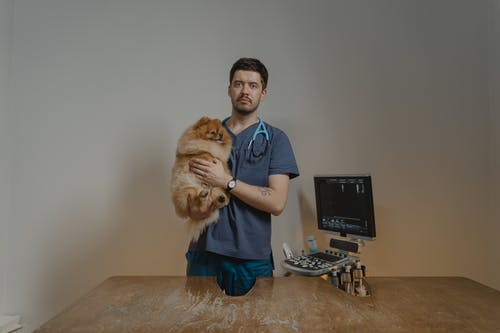
A critical part of preventive pet healthcare involves vaccinations. Vaccines play a significant role in fighting various diseases and improving your pet’s quality of life. They protect pets from deadly infections and ensure they are less susceptible to diseases in their lifetime.
The Purpose and Importance of Vaccines
Vaccines are given to pets to create resistance against specific diseases. They stimulate the immune system of pets to produce a response that can combat potential infection. The contribution of vaccines to the field of pet health and vaccinations is immense.
How Vaccines Work
Vaccines expose pets to weakened or inactivated infection-causing agents, such as bacteria and viruses. This triggers the immune system to react, creating memory cells and antibodies to fight off these agents without causing the disease.
The Role Vaccinations Play in Pets’ Health
As safe and effective preventative measures, vaccinations are a fundamental part of veterinary medicine and vaccinations.
Prevention of Infectious Diseases
Vaccines protect pets against a range of illnesses. For instance, rabies vaccination for pets is not just legally mandated in most regions but also crucial given the fatal nature of the disease. Other diseases prevented by pet vaccinations include:
- Distemper: It’s a severe, often fatal disease in cats and dogs.
- Canine Parvovirus: A highly contagious viral infection affecting dogs.
- Feline Leukemia: A viral infection spreading among cats.
Some diseases that pets are vaccinated against may also affect humans, such as rabies and Leptospirosis. This underlines the importance of staying current on pet vaccinations to protect both pet and human health, preventing zoonotic diseases.
Suppose you are searching for a vet in Everett for dog vaccinations. In that case, you may expect them to explain the importance of these vaccines and help you understand which vaccines your vet recommends, given your pet’s health and lifestyle conditions.
General Health and Wellness Promotion
Apart from disease prevention, vaccines improve general health and wellness by enhancing the pet’s immune system. Consequently, vaccinated pets are less likely to face health complications, which helps ensure a pet’s lifelong health with vaccinations.
Impact of Vaccinations on Pet Lifespan
- How Vaccinations Can Extend Your Pet’s Lifespan: Vaccinations significantly extend a pet’s lifespan. Vaccines reduce the risk and cost of treatment by preventing diseases, contributing to your pet’s healthier, longer life.
- Vaccinations and Quality of Life: Through prevention and control of disease, vaccines enhance the quality of life for pets, making them happier and healthier. Vaccines promote longevity and the wellness and comfort of our pets.
Potential Risks and Side Effects of Vaccinations
Identifying Common Post-Vaccination Reactions in Pets
While vaccinations are necessary for pets, pet owners should be aware of potential reactions and side effects. Typical short-term reactions include mild fever, lethargy, and decreased appetite. Long-term side effects are rare but could include allergic reactions and, in rare cases, the development of tumors at the injection site in cats.
Identifying Vaccine-Associated Illnesses
These could include immune-mediated disease outbreaks post-vaccination. However, it’s essential to remember that the benefits of vaccinations significantly outweigh these risks, given that vaccination often prevents severe and potentially fatal diseases.
The Right Vaccination Schedule for Your Pets
Vaccination schedules are usually determined based on the pet’s age, lifestyle, and overall health status. Your vet will guide you on this. When you take your pet for annual pet checkups in Everett, your vet will ensure that your pet stays current on vaccinations. This is because routine exams are also a critical part of maintaining your pet’s health, in addition to vaccination.
Importance of Regular Vet Visits in Maintaining Immunization
Regular veterinarian visits are paramount to keeping your pet’s immunizations up to date and monitoring your pet’s overall health. Annual checks include a physical examination, weighing, and perhaps other preventative measures such as dental cleanings and blood tests. Veterinary labs play a vital role in maintaining your pet’s health.
For instance, at Broadway4Pets veterinary testing lab, advanced healthcare technology provides comprehensive pet healthcare services, including diagnostic tests, routine preventative measures, and, most importantly, vaccinations.
Commonly Asked Questions about Pet Vaccination
- Is it Necessary for Indoor Pets to Get Vaccinated? Yes, indoor pets also need vaccinations. Some diseases like distemper, feline leukemia, and feline aids vaccinations can be contracted without your pet ever going outdoors.
- What are Core and Non-Core Vaccines? Core vaccines are those recommended for all pets, whereas non-core vaccines are administered based on the risk factor associated with the pet’s lifestyle and location.
- What to do When a Pet Misses a Vaccine Schedule? If a pet misses a vaccine, it’s best to contact the vet as soon as possible to reschedule.
- Are Natural Alternatives to Vaccines Effective? There isn’t enough scientific evidence to suggest natural alternatives are as effective as vaccinations. Consulting with a vet is recommended.
Conclusion
In the realm of pet health, vaccinations stand as a powerful tool for disease prevention. They curb the onslaught of serious, life-threatening diseases, protecting your pet’s health and promoting longevity. Combining these benefits with the role vaccinations play in bolstering overall wellness and quality of life, it’s apparent that they are an integral part of securing a healthy and happy life for your pets. Keeping up-to-date with vaccinations is key to providing the best possible care for your furry friends.
